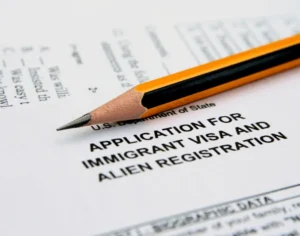MAY 14, 2021
Why DNA Tests are Important for Immigration

DNA Testing for Immigration
The Immigration and Nationality Act (INA) grants citizens and legal permanent residents the benefit of petitioning for certain relatives to immigrate to the U.S. To establish the legitimacy of a relationship for immigration purposes, applicants must produce specific paperwork in addition to meeting other requirements. Primary legal documents typically used to prove this relationship include marriage and birth certificates and adoption papers. But what if documents are missing or inaccessible? U.S. immigration agencies first began using DNA tests to verify family relationships in 2000.
CALL NOWUSCIS-Approved DNA Testing
Frequently, when a person is forced to flee a war-torn country or developing country, identity documents may be scarce or doctored. When that individual becomes a U.S. citizen and wishes to bring a spouse or children they left behind to the U.S., DNA testing can be instrumental in the family reunification process. While DNA testing for immigrants isn’t required, the U.S. Citizenship and Immigration Services (USCIS) officer assigned to the case can suggest testing be done to establish the required biological bonds. It is voluntary and so the applicant must pay in advance for all testing costs and related testing facility/laboratory expenses. The DNA results are sent directly to USCIS and the officer assigned to the case considers this along with any other evidence submitted. It’s important to know that a DNA test establishing the claimed relationship doesn’t guarantee approval of the petition.
Compulsory DNA Testing
In the U.S., the Department of Homeland Security (DHS) and Department of Justice (DOJ) instituted compulsory DNA testing solely for immigrants seeking family-based visas under the U.S. Refugee Admissions Program Priority Three (P-3) program. This program includes spouses, unmarried children, and parents of people of designated nationalities who entered the U.S. as refugees or who were granted asylum. Suspicions of fraud resulted in the testing policy, which was piloted in 2008 and mandated in 2012.
GET A FREE EXPERT CONSULTDNA Testing in the UK
Individuals who wish to reunite with family members residing in the UK must provide proof of a biological relationship to meet requirements of the UK Border Agency. Prior to the September 2015 amendment of the British Nationality (Proof of Paternity) Regulations of 2006, a birth certificate issued within 12 months of a child being born was sufficient evidence to establish paternity for British nationality applications. If the father is married to the child’s mother at the time of birth, a paternity test to prove the relationship still isn’t necessary. If unmarried, DNA testing to prove paternity may be suggested to support immigration cases. As in the U.S, the policy states that officials must not require DNA evidence, but applicants are free to volunteer DNA evidence if they choose to do so. If you are interested in immigrating to the UK, we have a dedicated team there; visit our UK website.
The bottom line is that when DNA relationship testing is performed by an accredited lab, it is a scientifically- and legally-accepted method to establish a biological relationship for immigration and other purposes. No other DNA-testing company has more experience in this important area than DDC.
About DNA Diagnostics Center (DDC)
DNA Diagnostic Center is the world leader in paternity and relationship testing. We serve healthcare professionals, government agencies, and individuals around the world to determine family relationships with trusted accuracy.
More Questions? Don’t hesitate to call us: we’re here to help!
CALL NOW




